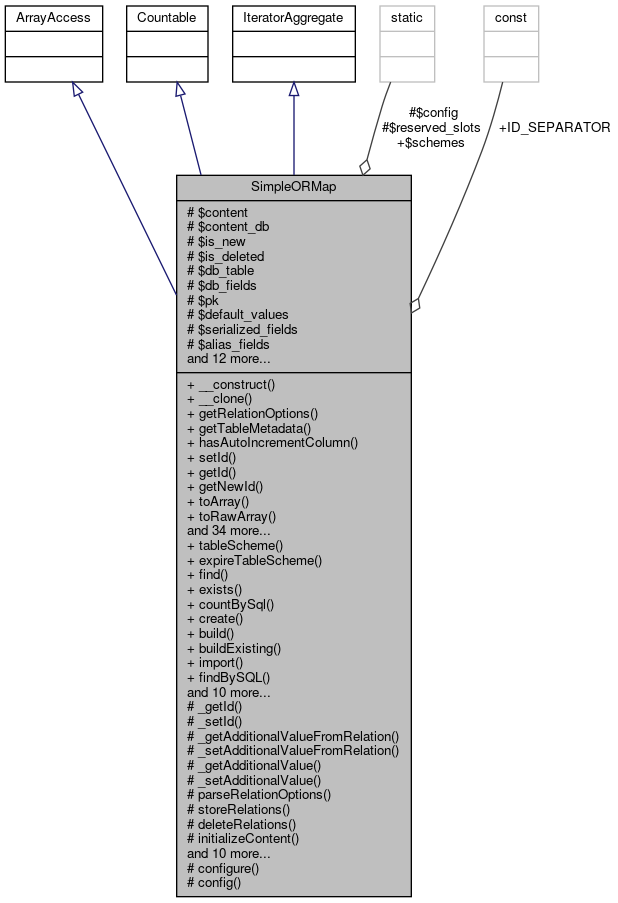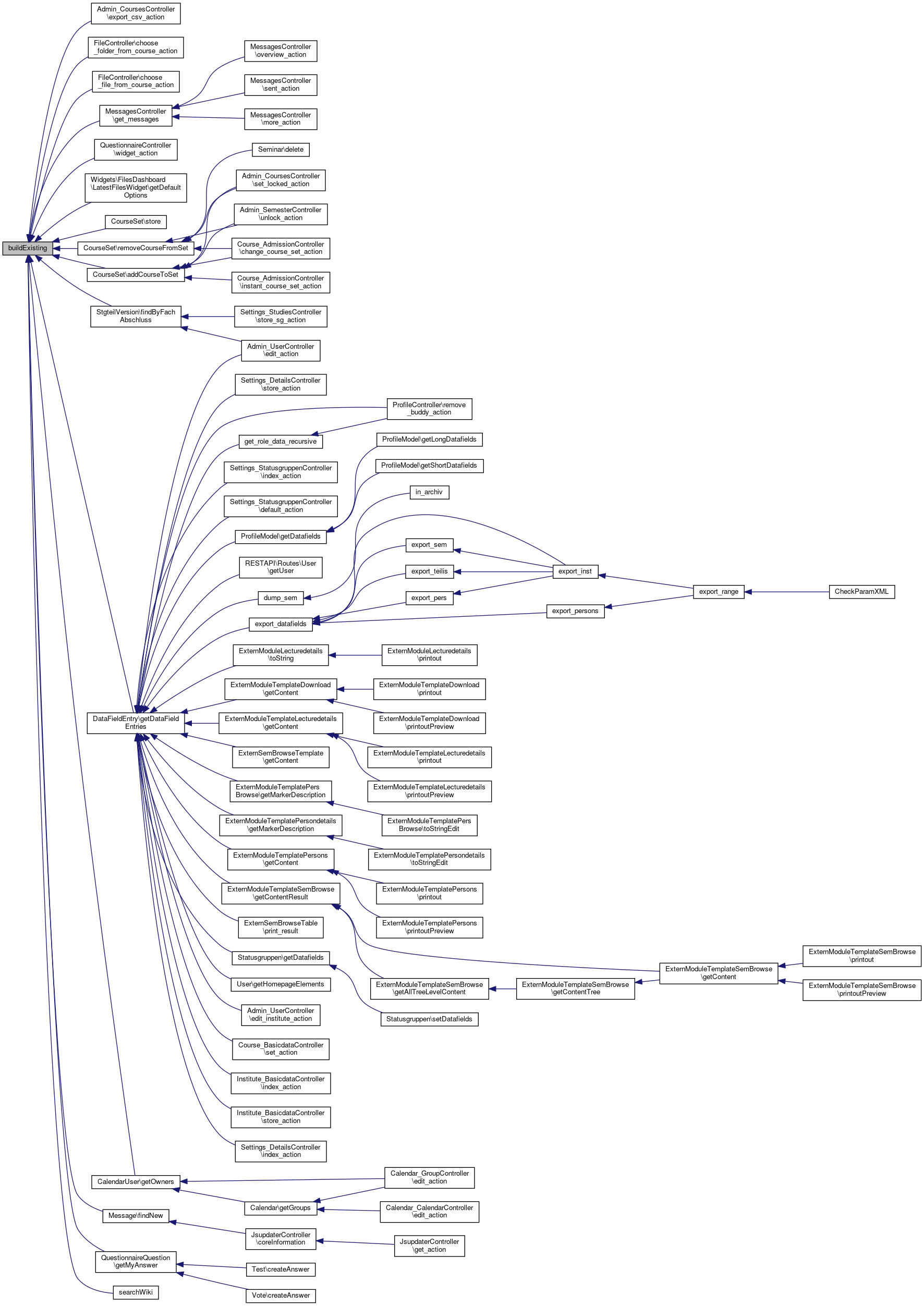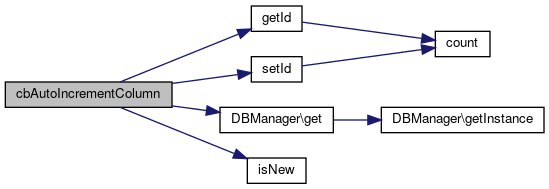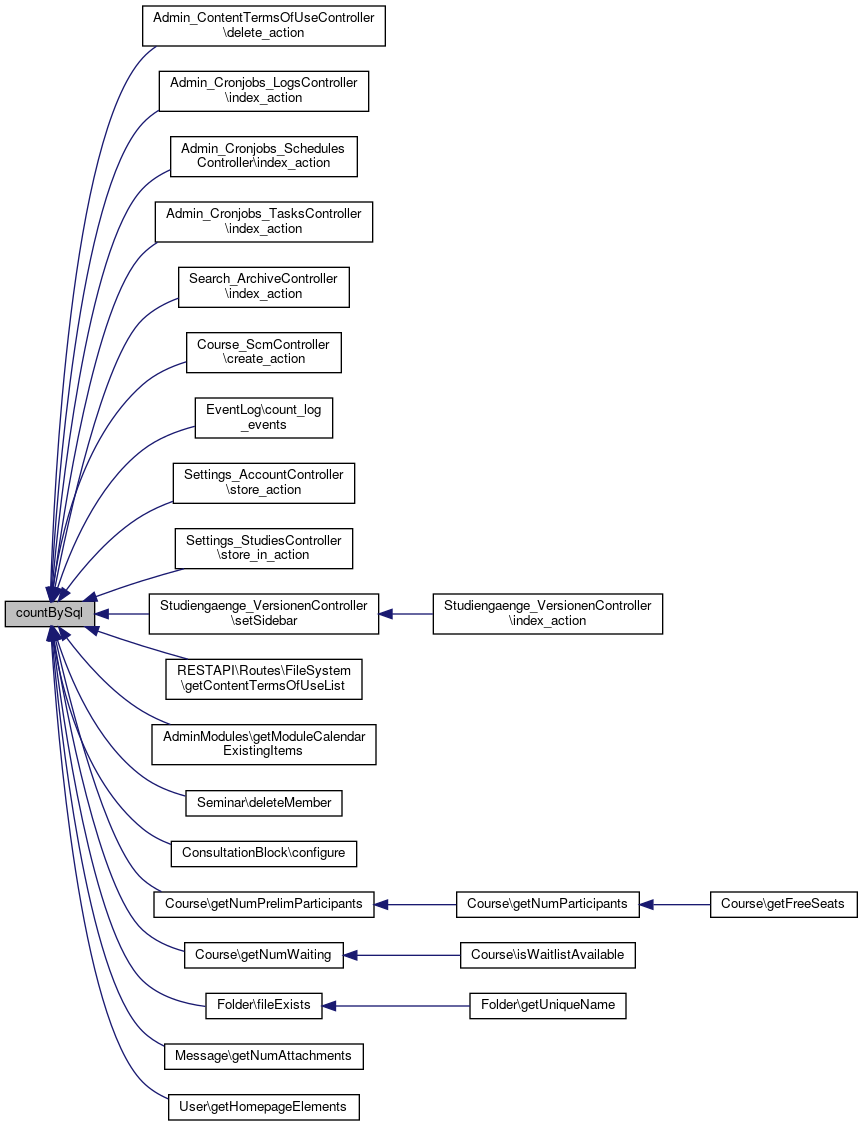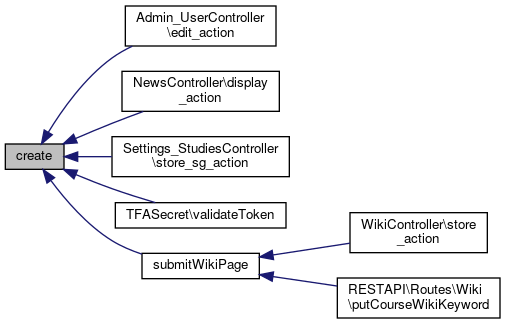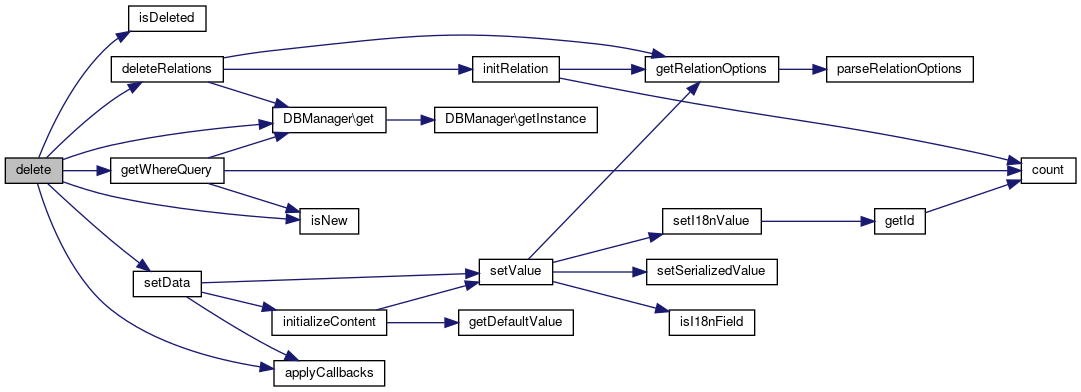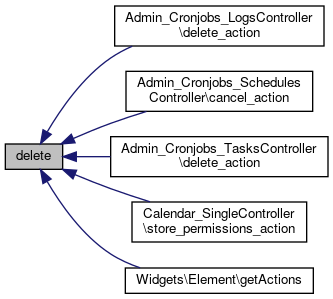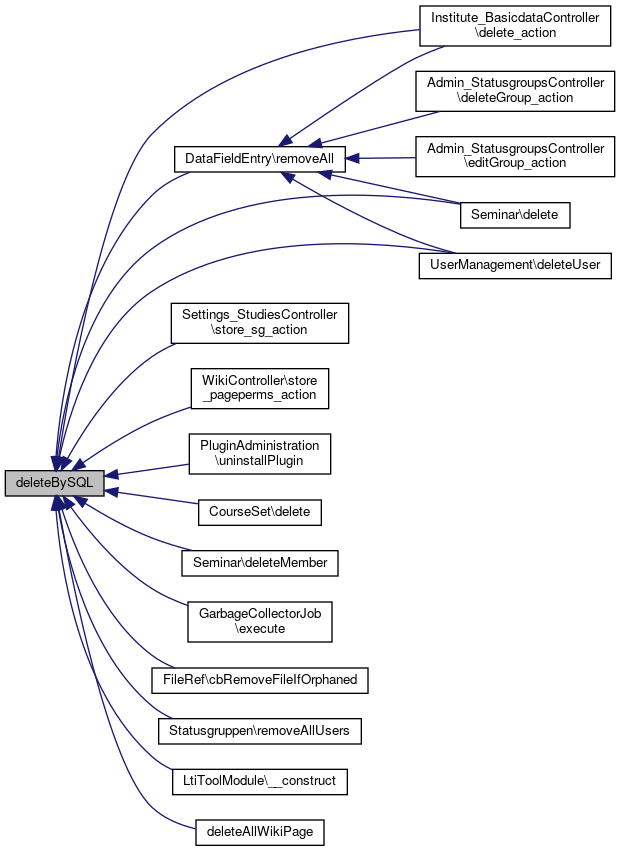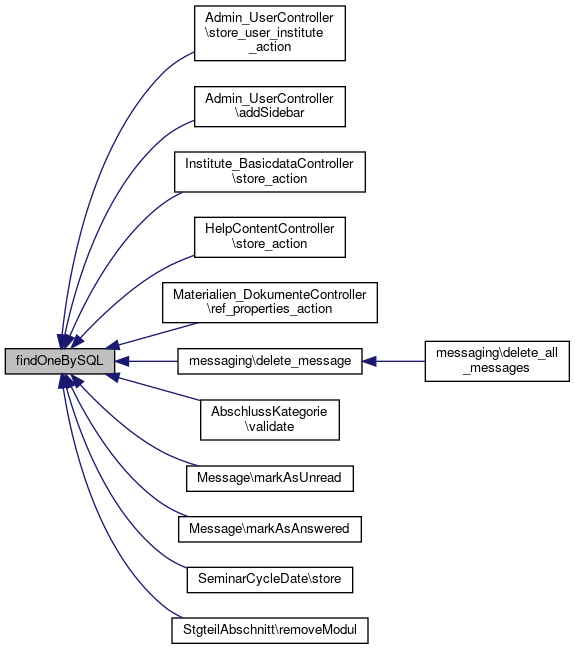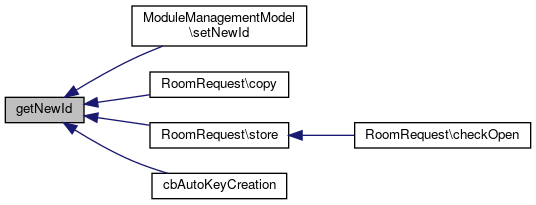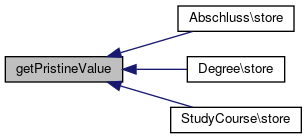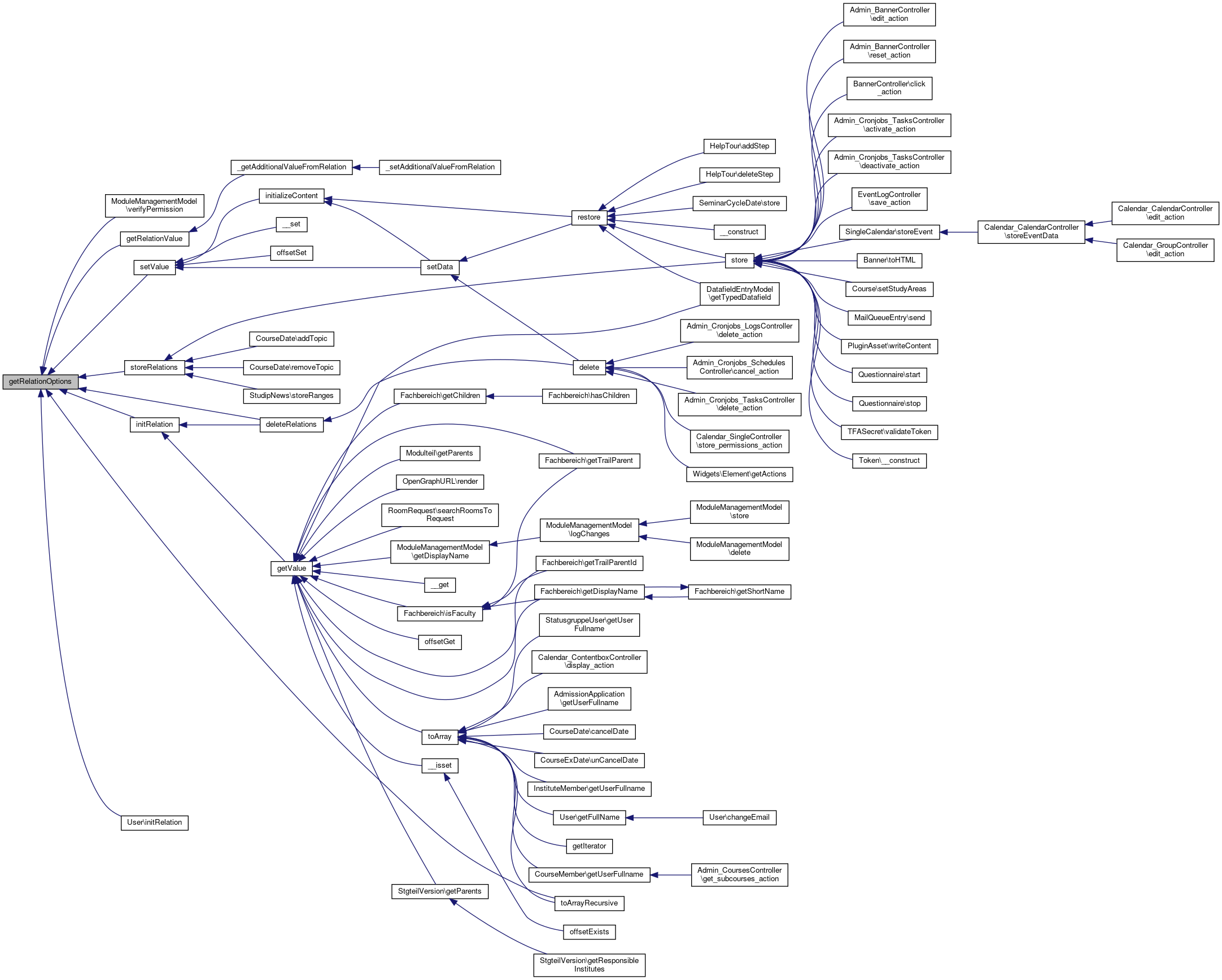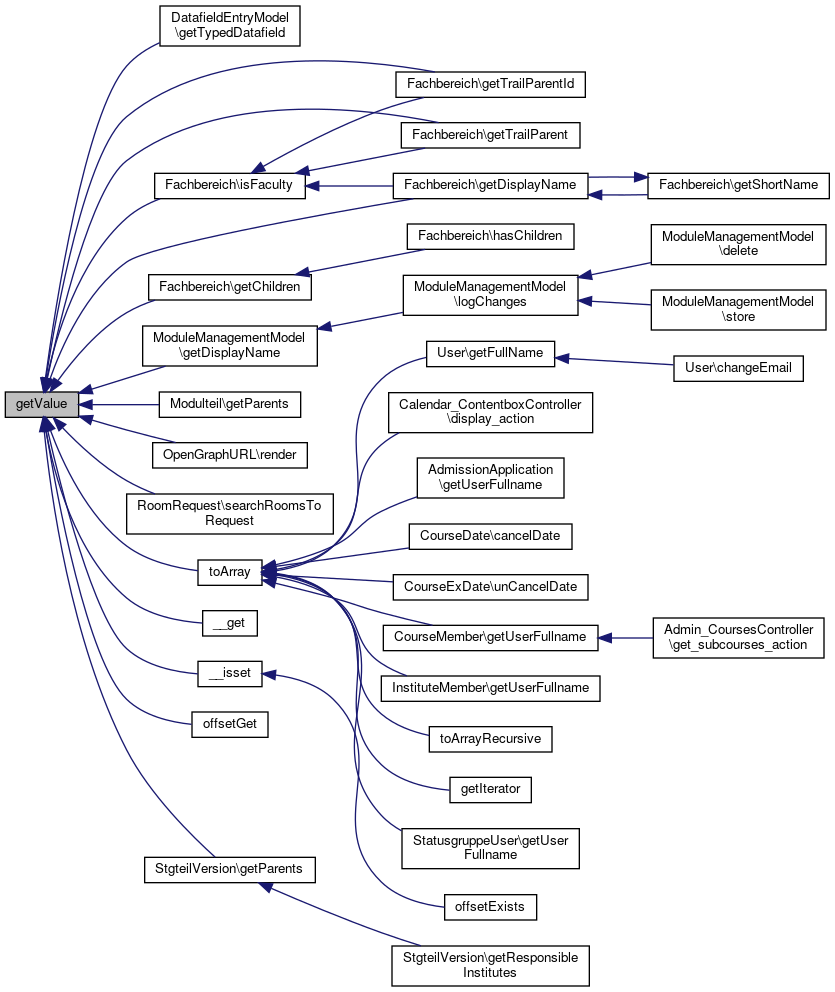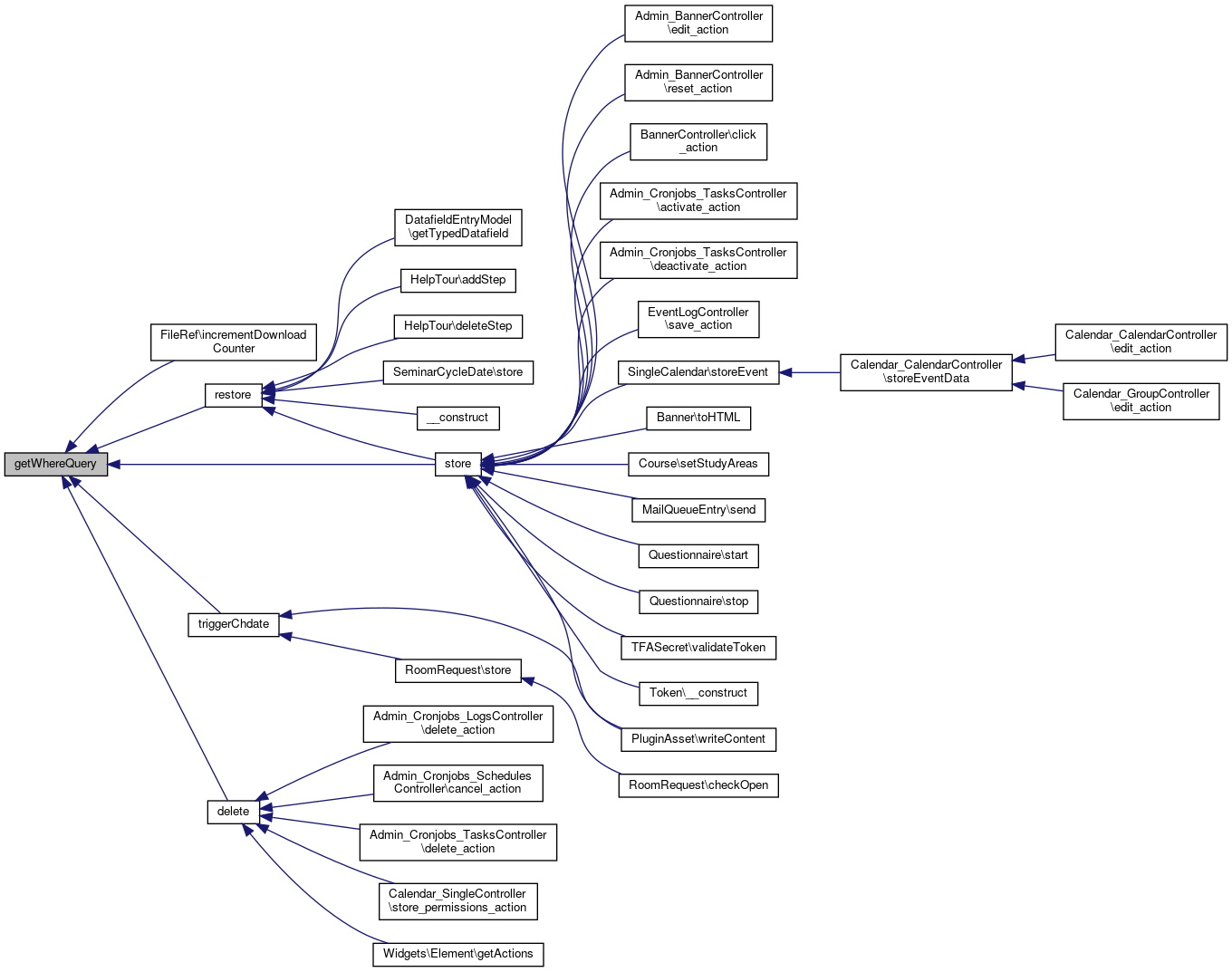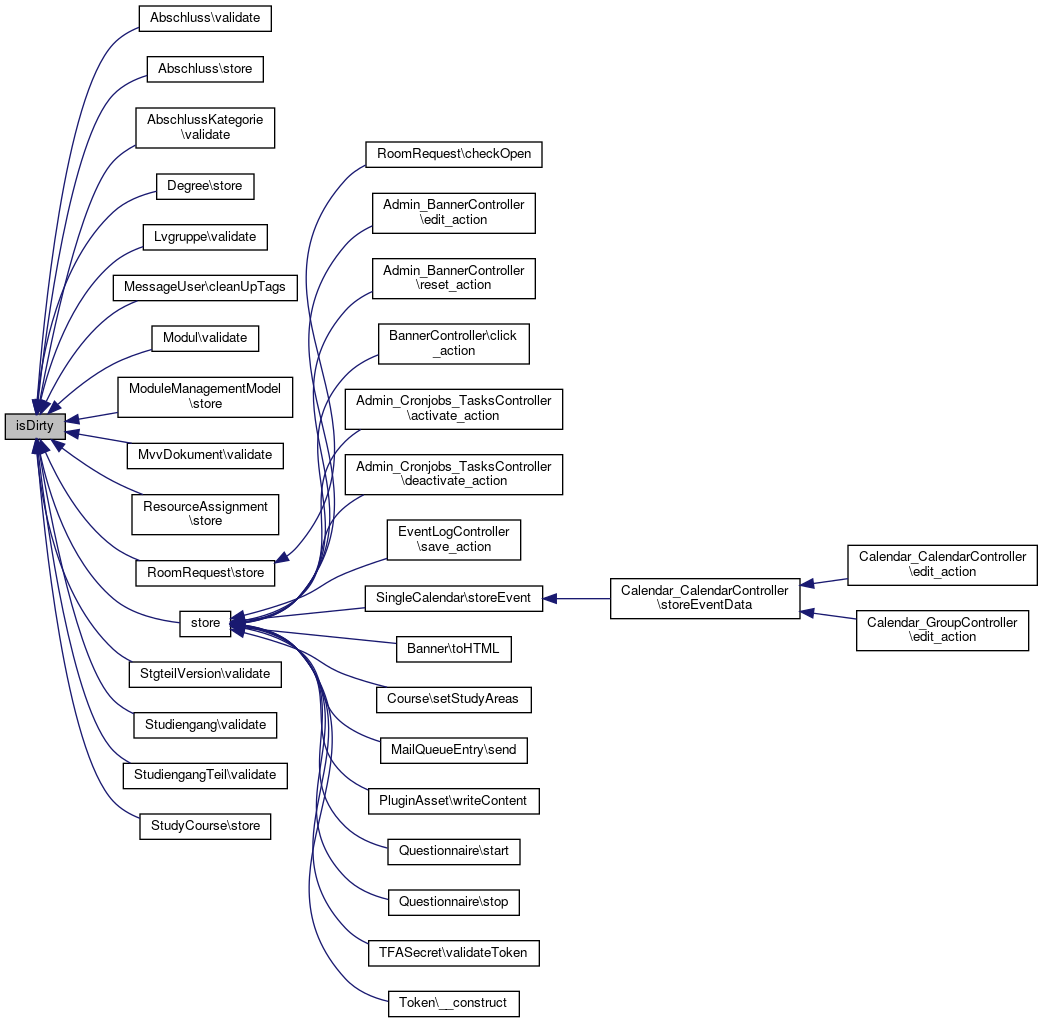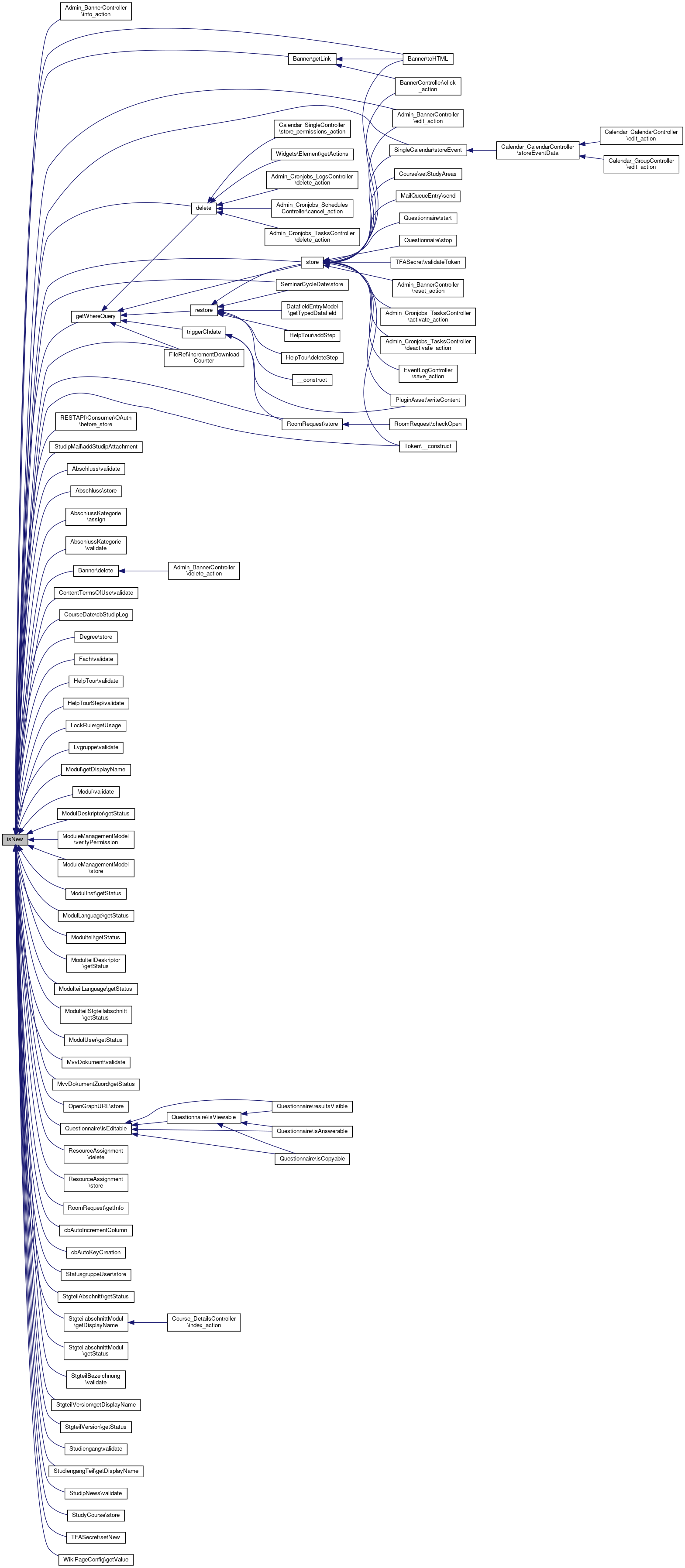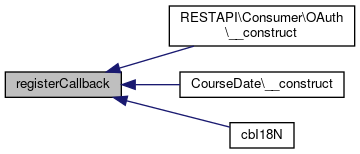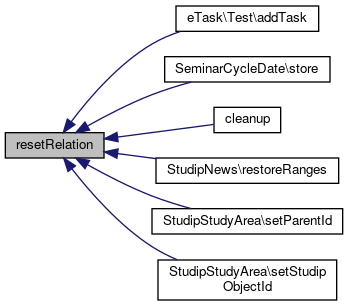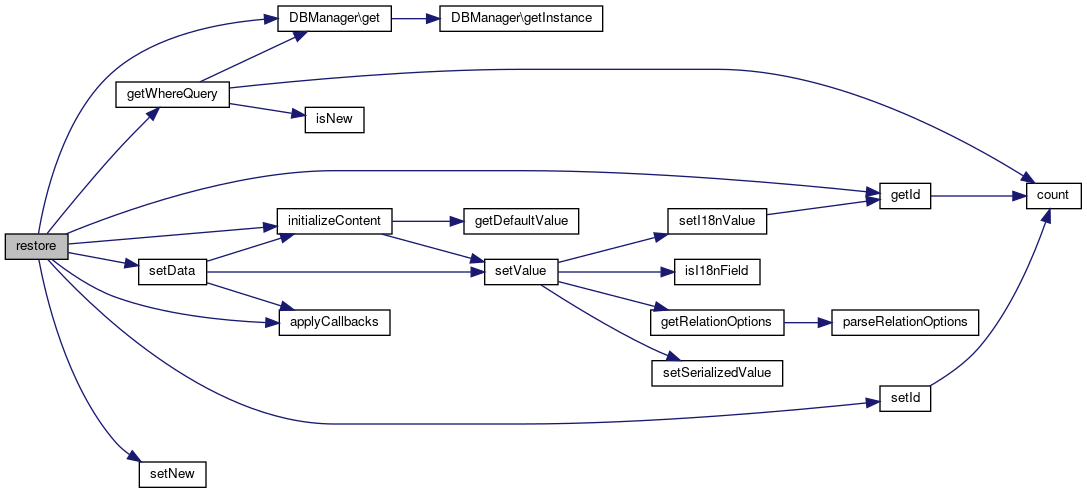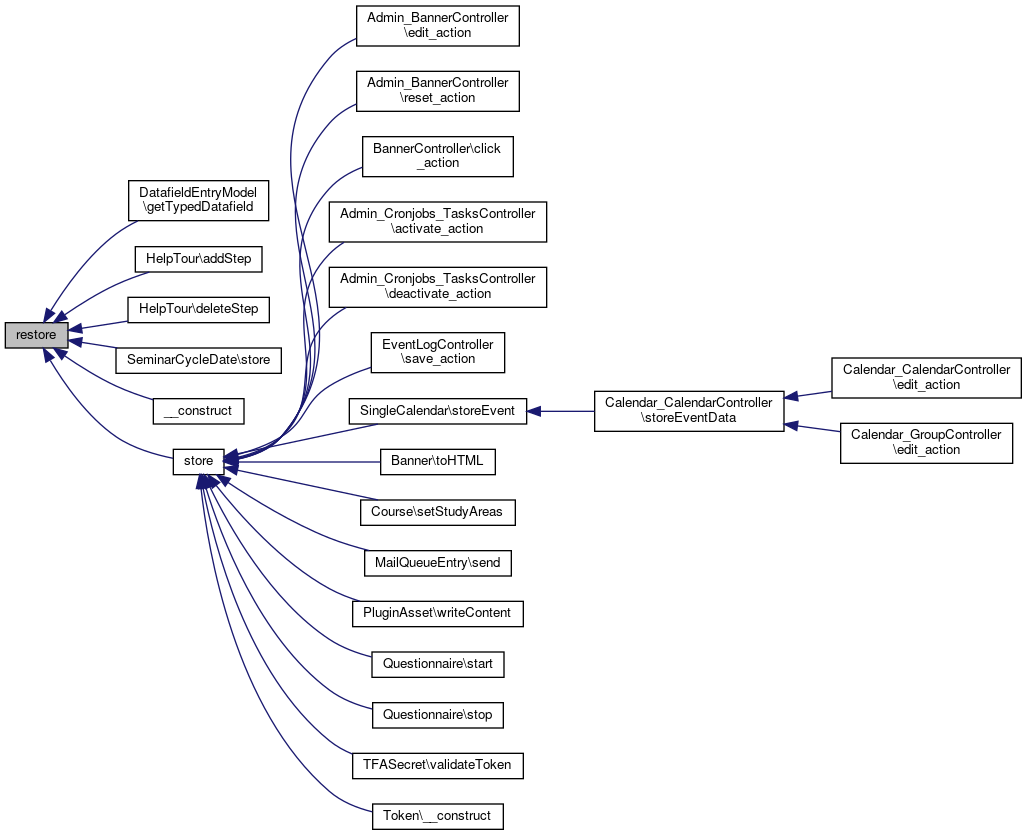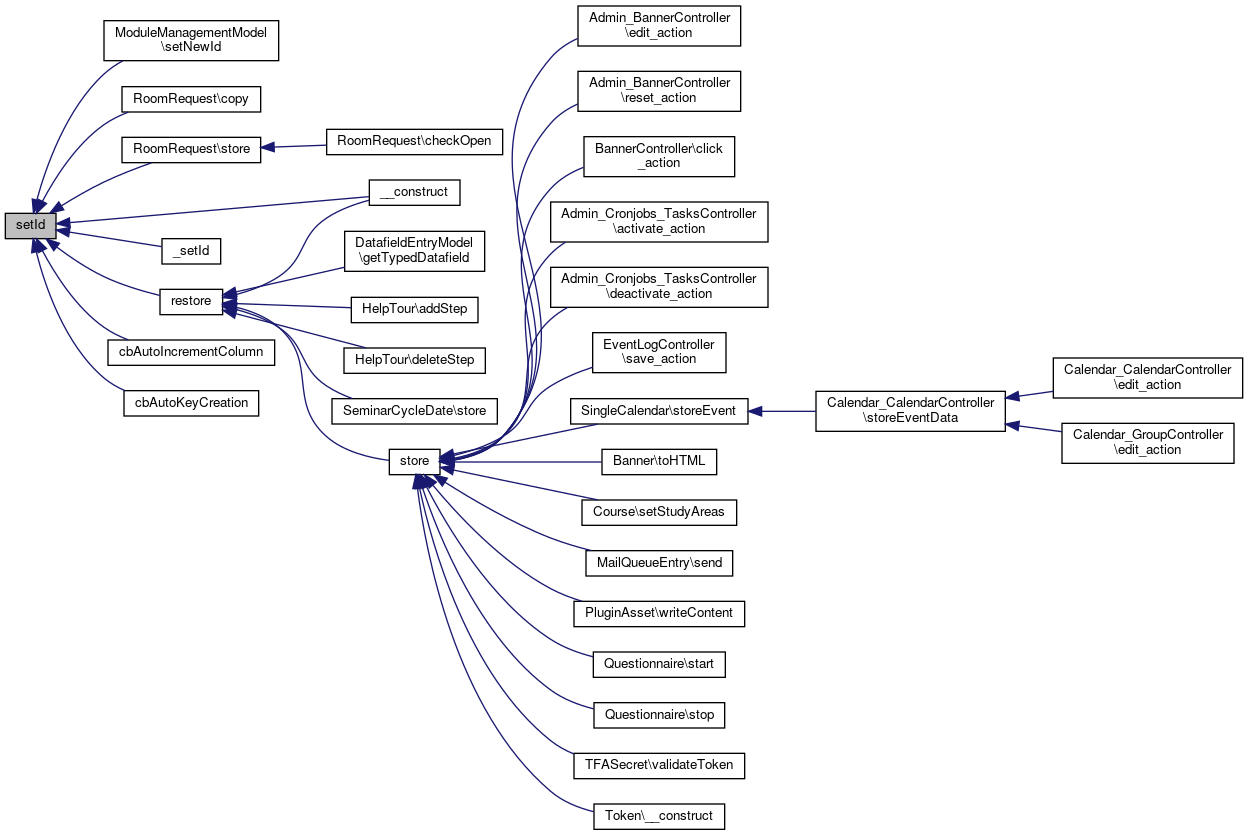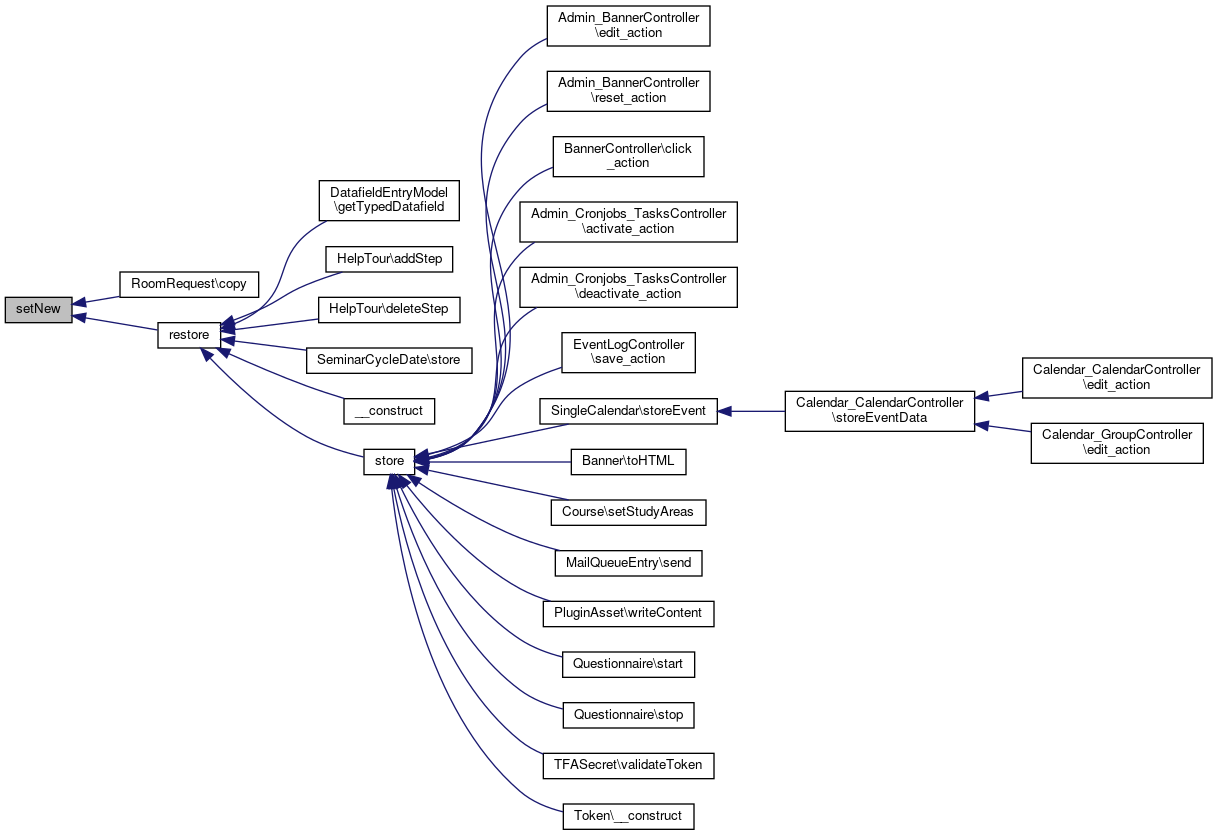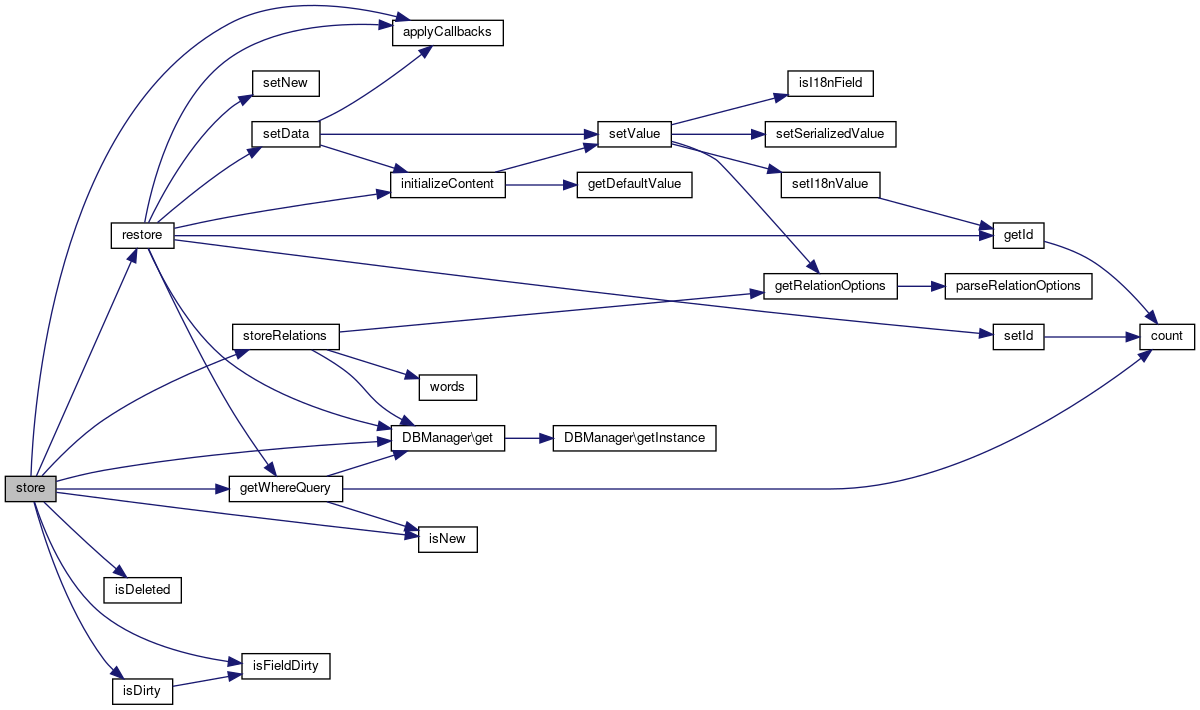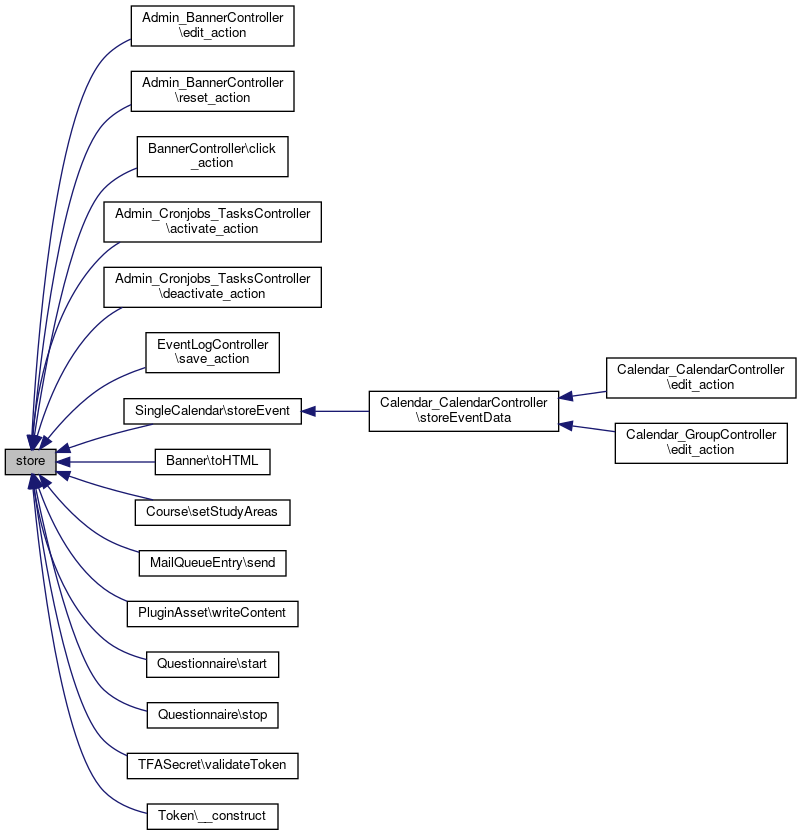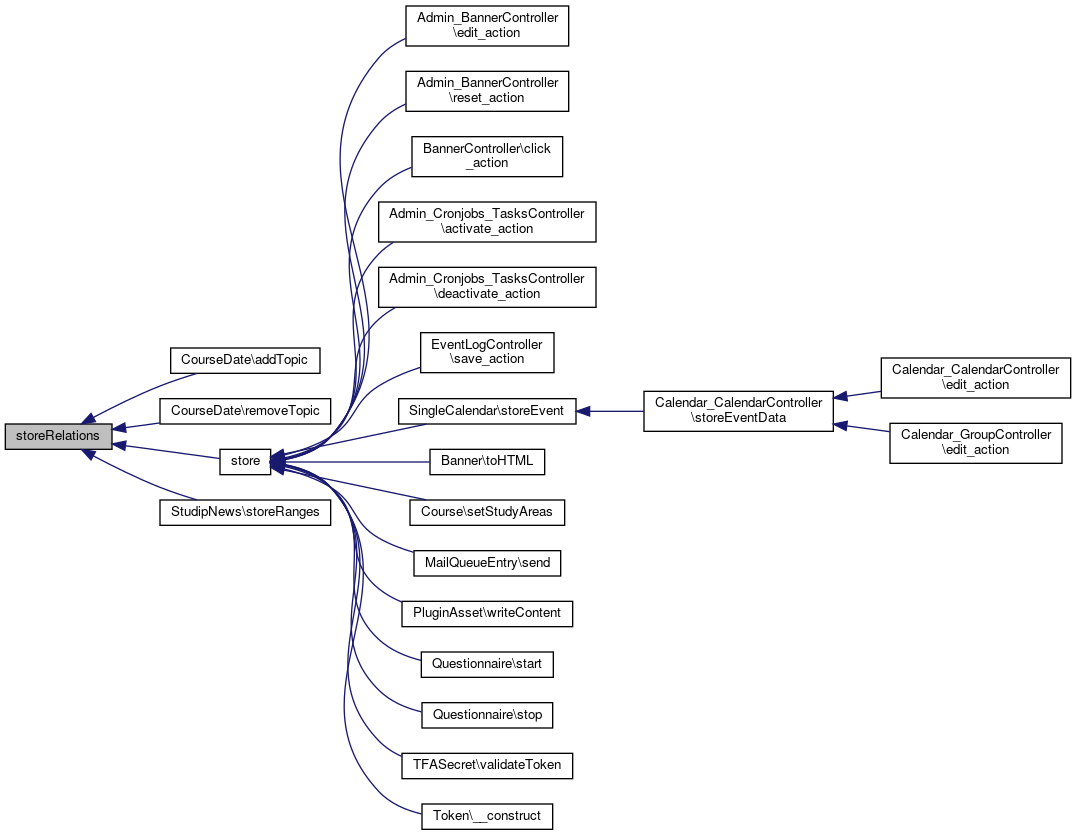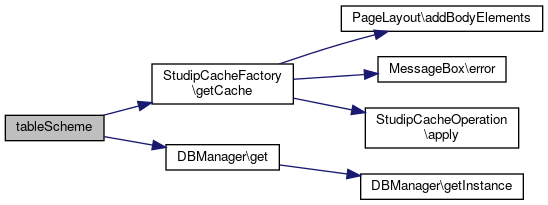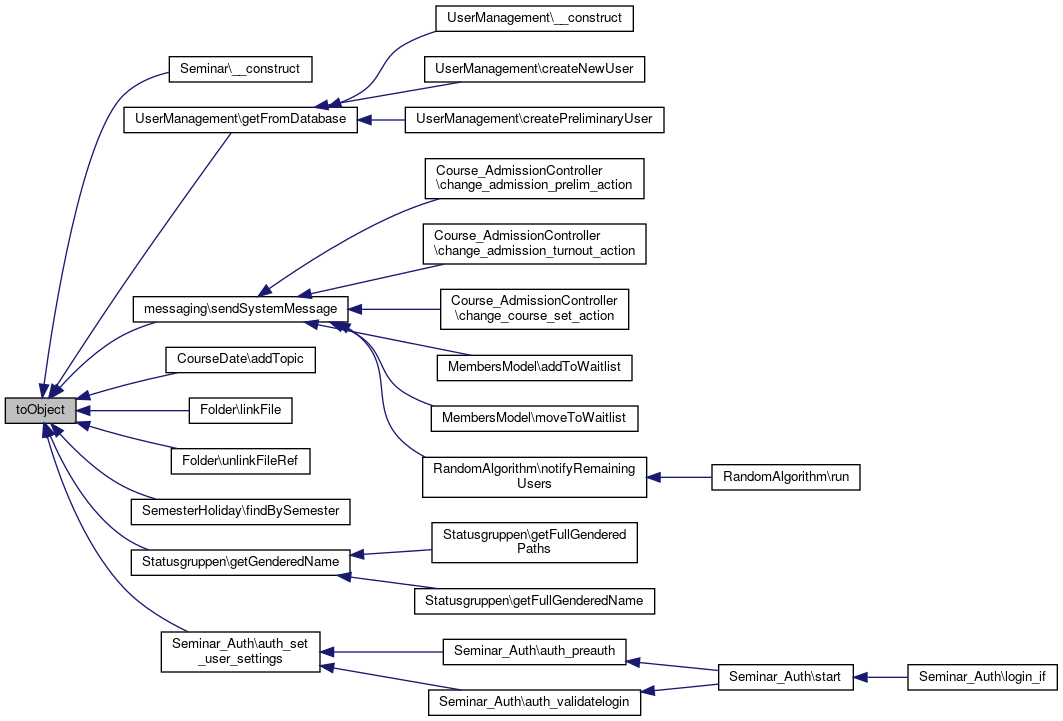Inherits ArrayAccess, Countable, and IteratorAggregate.
Inherited by AdmissionApplication, AdmissionRuleCompatibility, ArchivedCourse, ArchivedCourseMember, AuthUserMd5, AuxLockRule, Banner, CalendarEvent, CalendarUser, ConfigEntry, ConfigValue, ConsultationBlock, ConsultationBooking, ConsultationSlot, Contact, ContentTermsOfUse, Course, CourseDate, CourseExDate, CourseMember, CourseTopic, CourseWizardStepRegistry, CronjobLog, CronjobSchedule, CronjobTask, DataField, DatafieldEntryModel, Degree, Deputy, EventData, File, FileRef, FileURL, Folder, Definition, Instance, HelpContent, HelpTour, HelpTourAudience, HelpTourSettings, HelpTourStep, HelpTourUser, Institute, InstituteMember, Kategorie, LockRule, LogAction, LogEvent, LoginBackground, LtiData, LtiGrade, LtiTool, MailQueueEntry, Message, MessageUser, ModuleManagementModel, NewsRange, OpenGraphURL, PersonalNotifications, PersonalNotificationsUser, PluginAsset, Questionnaire, QuestionnaireAnonymousAnswer, QuestionnaireAnswer, QuestionnaireAssignment, QuestionnaireQuestion, Base, ResourceAssignment, RoomRequest, Semester, SemesterHoliday, SeminarCycleDate, StatusgruppeUser, Statusgruppen, StudipCacheOperation, StudipComment, StudipEvaluation, StudipNews, StudipScmEntry, StudipStudyArea, StudyCourse, TFASecret, TFAToken, Token, UserInfo, UserOnline, UserStudyCourse, User_Visibility_Settings, WebserviceAccessRule, Container, Element, Widget, WikiPage, WikiPageConfig, Assignment, AssignmentRange, Attempt, Response, Task, Test, and TestTask.
|
| static | tableScheme ($db_table) |
| |
| static | expireTableScheme () |
| |
| static | find ($id) |
| |
| static | exists ($id) |
| |
| static | countBySql ($sql=1, $params=[]) |
| |
| static | create ($data) |
| |
| static | build ($data, $is_new=true) |
| |
| static | buildExisting ($data) |
| |
| static | import ($data) |
| |
| static | findBySQL ($sql, $params=[]) |
| |
| static | findOneBySQL ($where, $params=[]) |
| |
| static | findThru ($foreign_key_value, $options) |
| |
| static | findEachBySQL ($callable, $sql, $params=[]) |
| |
| static | findMany ($pks=[], $order='', $order_params=[]) |
| |
| static | findEachMany ($callable, $pks=[], $order='', $order_params=[]) |
| |
| static | findAndMapBySQL ($callable, $where, $params=[]) |
| |
| static | findAndMapMany ($callable, $pks=[], $order='', $order_params=[]) |
| |
| static | deleteBySQL ($where, $params=[]) |
| |
| static | toObject ($id_or_object) |
| |
| static | __callStatic ($name, $arguments) |
| |
|
| static | $config = [] |
| |
| static | $reserved_slots = ['value','newid','iterator','tablemetadata', 'relationvalue','wherequery','relationoptions','data','new','id'] |
| |
◆ __construct()
| __construct |
( |
|
$id = null | ) |
|
constructor, give primary key of record as param to fetch corresponding record from db if available, if not preset primary key with given value. Give null to create new record
- Parameters
-
| mixed | $id | primary key of table |
Reimplemented in OAuth, Abschluss, AbschlussKategorie, CourseDate, CourseEvent, Fach, Fachbereich, Lvgruppe, LvgruppeModulteil, LvgruppeSeminar, Modul, ModulDeskriptor, Modulteil, ModulteilDeskriptor, ModulteilStgteilabschnitt, MvvDokument, MvvDokumentZuord, OpenGraphURL, StgteilabschnittModul, StgteilBezeichnung, StgteilVersion, Studiengang, StudiengangStgteil, and StudiengangTeil.
◆ __callStatic()
| static __callStatic |
( |
|
$name, |
|
|
|
$arguments |
|
) |
| |
|
static |
interceptor for static findByColumn / findEachByColumn / countByColumn / deleteByColumn magic
- Parameters
-
| string | $name | |
| array | $arguments | |
- Exceptions
-
- Returns
- mixed
◆ __clone()
clean up references after cloning
Reimplemented in CalendarEvent.
◆ __get()
magic method for dynamic properties
◆ __isset()
magic method for dynamic properties
◆ __set()
magic method for dynamic properties
◆ _getAdditionalValue()
| _getAdditionalValue |
( |
|
$field | ) |
|
|
protected |
- Parameters
-
- Returns
- multitype:
◆ _getAdditionalValueFromRelation()
| _getAdditionalValueFromRelation |
( |
|
$field | ) |
|
|
protected |
retrieves an additional field value from relation
- Parameters
-
- Returns
- multitype:
◆ _getId()
returns internal used id value (multiple keys concatenated with _)
◆ _setAdditionalValue()
| _setAdditionalValue |
( |
|
$field, |
|
|
|
$value |
|
) |
| |
|
protected |
- Parameters
-
- Returns
- multitype:
◆ _setAdditionalValueFromRelation()
| _setAdditionalValueFromRelation |
( |
|
$field, |
|
|
|
$value |
|
) |
| |
|
protected |
sets additional value in field imported from relation
- Parameters
-
- Returns
- multitype:
◆ _setId()
| _setId |
( |
|
$field, |
|
|
|
$value |
|
) |
| |
|
protected |
sets internal used id value (multiple keys concatenated with _)
- Parameters
-
| string | $field | Field to set (unused since it's always the id) |
| string | $value | Value for id field |
◆ applyCallbacks()
invoke registered callbacks for given type if one callback returns false the following will not be invoked
- Parameters
-
| string | $type | type of callback |
- Returns
- bool return value from last callback
◆ build()
| static build |
( |
|
$data, |
|
|
|
$is_new = true |
|
) |
| |
|
static |
build object with given data
- Parameters
-
| array | $data | assoc array of record |
| bool | $is_new | set object to new state |
- Returns
- static
Reimplemented in User.
◆ buildExisting()
| static buildExisting |
( |
|
$data | ) |
|
|
static |
build object with given data and mark it as existing
- Parameters
-
| $data | array assoc array of record |
- Returns
- static
◆ cbAfterInitialize()
| cbAfterInitialize |
( |
|
$cb_type | ) |
|
|
protected |
default callback used to map specific callbacks to NotificationCenter
- Parameters
-
| string | $cb_type | callback type |
- Returns
- boolean
◆ cbAutoIncrementColumn()
| cbAutoIncrementColumn |
( |
|
$type | ) |
|
|
protected |
default callback for tables with auto_increment primary key
- Parameters
-
- Returns
- boolean
◆ cbAutoKeyCreation()
default callback for tables without auto_increment
◆ cbI18N()
default callback for tables with I18N fields
- Parameters
-
- Returns
- bool
◆ cbNotificationMapper()
| cbNotificationMapper |
( |
|
$cb_type | ) |
|
|
protected |
default callback used to map specific callbacks to NotificationCenter
- Parameters
-
| string | $cb_type | callback type |
- Returns
- boolean
◆ cleanup()
Cleans up this object. This essentially reset all relations of this object and marks them as unused so that the garbage collector may remove the objects.
Use this function when you ran into memory problems and need to free some memory;
◆ config()
fetch config data for the called class
- Parameters
-
- Returns
- string value of config key (null if not set)
◆ configure()
| static configure |
( |
|
$config = [] | ) |
|
|
staticprotected |
set configuration data from subclass
- Parameters
-
| array | $config | configuration data |
- Returns
- void
Reimplemented in Base, OAuth, Abschluss, AbschlussKategorie, AbschlussZuord, AdmissionApplication, AdmissionRuleCompatibility, ArchivedCourse, ArchivedCourseMember, AuthUserMd5, AuxLockRule, Banner, CalendarEvent, CalendarUser, ConfigEntry, ConfigValue, ConsultationBlock, ConsultationBooking, ConsultationSlot, Contact, ContentTermsOfUse, Course, CourseCancelledEvent, CourseDate, CourseEvent, CourseExDate, CourseMarkedEvent, CourseMember, CourseTopic, CourseWizardStepRegistry, CronjobLog, CronjobSchedule, CronjobTask, DataField, DatafieldEntryModel, DatafieldEntryModelI18N, Degree, Deputy, Assignment, AssignmentRange, Attempt, Response, Task, Test, TestTask, EventData, Fach, Fachberater, Fachbereich, FachFachbereich, File, FileRef, FileURL, Folder, Definition, Instance, HelpContent, HelpTour, HelpTourAudience, HelpTourSettings, HelpTourStep, HelpTourUser, Institute, InstituteMember, Kategorie, LockRule, LogAction, LogEvent, LoginBackground, LtiData, LtiGrade, LtiTool, Lvgruppe, LvgruppeModulteil, LvgruppeSeminar, MailQueueEntry, Message, MessageUser, Modul, ModulDeskriptor, ModulInst, ModulLanguage, Modulteil, ModulteilDeskriptor, ModulteilLanguage, ModulteilStgteilabschnitt, ModulUser, MvvCourse, MvvDokument, MvvDokumentZuord, NewsRange, OpenGraphURL, PersonalNotifications, PersonalNotificationsUser, PluginAsset, Questionnaire, QuestionnaireAnonymousAnswer, QuestionnaireAnswer, QuestionnaireAssignment, QuestionnaireQuestion, ResourceAssignment, RoomRequest, Semester, SemesterHoliday, SeminarCycleDate, Statusgruppen, StatusgruppeUser, StgteilAbschnitt, StgteilabschnittModul, StgteilBezeichnung, StgteilVersion, Studiengang, StudiengangStgteil, StudiengangTeil, StudipCacheOperation, StudipComment, StudipEvaluation, StudipNews, StudipScmEntry, StudipStudyArea, StudyCourse, TFASecret, TFAToken, Token, User, UserInfo, UserOnline, UserStudyCourse, WebserviceAccessRule, Container, Element, Widget, WikiPage, and WikiPageConfig.
◆ count()
◆ countBySql()
| static countBySql |
( |
|
$sql = 1, |
|
|
|
$params = [] |
|
) |
| |
|
static |
returns number of records
- Parameters
-
| string | sql clause to use on the right side of WHERE |
| array | params for query |
- Returns
- number
◆ create()
creates new record with given data in db returns the new object or null
- Parameters
-
| array | $data | assoc array of record |
- Returns
- SimpleORMap
Reimplemented in Base.
◆ delete()
delete entry from database the object is cleared, but is not(!) turned to new state
- Returns
- int number of deleted rows
Reimplemented in Banner, CourseDate, EventData, InstituteMember, LockRule, LtiData, ModuleManagementModel, PluginAsset, ResourceAssignment, RoomRequest, SeminarCycleDate, Statusgruppen, StatusgruppeUser, StgteilabschnittModul, and StudipNews.
◆ deleteBySQL()
| static deleteBySQL |
( |
|
$where, |
|
|
|
$params = [] |
|
) |
| |
|
static |
deletes objects specified by sql clause
- Parameters
-
| string | $where | sql clause to use on the right side of WHERE |
| array | $params | parameters for query |
- Returns
- number
Reimplemented in CalendarEvent.
◆ deleteRelations()
sends a delete message to all related objects if a relation has a callback for 'on_delete' configured, the callback is invoked instead
- Returns
- number addition of all return values, false if none was called
◆ exists()
returns true if given key exists in db
- Parameters
-
- Returns
- boolean
◆ expireTableScheme()
| static expireTableScheme |
( |
| ) |
|
|
static |
force reload of cached table metadata
◆ find()
◆ findAndMapBySQL()
| static findAndMapBySQL |
( |
|
$callable, |
|
|
|
$where, |
|
|
|
$params = [] |
|
) |
| |
|
static |
passes objects for given sql through given callback and returns an array of callback return values
- Parameters
-
| callable | $callable | callback which gets the current record as param |
| string | where clause of sql |
| array | sql statement parameters |
- Returns
- array return values of callback
◆ findAndMapMany()
| static findAndMapMany |
( |
|
$callable, |
|
|
|
$pks = [], |
|
|
|
$order = '', |
|
|
|
$order_params = [] |
|
) |
| |
|
static |
passes objects for by given pks through given callback and returns an array of callback return values
- Parameters
-
| callable | $callable | callback which gets the current record as param |
| array | $pks | array of primary keys of called class |
| string | $order | order by sql |
- Returns
- array return values of callback
◆ findBySQL()
| static findBySQL |
( |
|
$sql, |
|
|
|
$params = [] |
|
) |
| |
|
static |
returns array of instances of given class filtered by given sql
- Parameters
-
| string | sql clause to use on the right side of WHERE |
| array | parameters for query |
- Returns
- array array of "self" objects
◆ findEachBySQL()
| static findEachBySQL |
( |
|
$callable, |
|
|
|
$sql, |
|
|
|
$params = [] |
|
) |
| |
|
static |
passes objects for given sql through given callback
- Parameters
-
| callable | $callable | callback which gets the current record as param |
| string | where clause of sql |
| array | sql statement parameters |
- Returns
- integer number of found records
◆ findEachMany()
| static findEachMany |
( |
|
$callable, |
|
|
|
$pks = [], |
|
|
|
$order = '', |
|
|
|
$order_params = [] |
|
) |
| |
|
static |
passes objects for by given pks through given callback
- Parameters
-
| callable | $callable | callback which gets the current record as param |
| array | $pks | array of primary keys of called class |
| string | $order | order by sql |
- Returns
- integer number of found records
◆ findMany()
| static findMany |
( |
|
$pks = [], |
|
|
|
$order = '', |
|
|
|
$order_params = [] |
|
) |
| |
|
static |
returns array of instances of given class for by given pks
- Parameters
-
| array | array og primary keys |
| string | order by clause |
- Returns
- array
◆ findOneBySQL()
| static findOneBySQL |
( |
|
$where, |
|
|
|
$params = [] |
|
) |
| |
|
static |
returns one instance of given class filtered by given sql only first row of query is used
- Parameters
-
| string | sql clause to use on the right side of WHERE |
| array | parameters for query |
- Returns
- SimpleORMap|NULL
◆ findThru()
| static findThru |
( |
|
$foreign_key_value, |
|
|
|
$options |
|
) |
| |
|
static |
find related records for a n:m relation (has_many_and_belongs_to_many) using a combination table holding the keys
- Parameters
-
| string | value of foreign key to find related records |
| array | relation options from other side of relation |
- Returns
- array of "self" objects
◆ getDefaultValue()
| getDefaultValue |
( |
|
$field | ) |
|
returns default value for column
- Parameters
-
| string | $field | name of column |
- Returns
- mixed the default value
Reimplemented in EventData.
◆ getId()
returns primary key, multiple keys as array
- Returns
- string|array current primary key, null if not set
◆ getIterator()
◆ getNewId()
create new unique pk as md5 hash if pk consists of multiple columns, false is returned
- Returns
- boolean|string
◆ getPristineValue()
| getPristineValue |
( |
|
$field | ) |
|
returns unmodified value of given field
- Parameters
-
- Exceptions
-
- Returns
- mixed
Reimplemented in User.
◆ getRelationOptions()
| getRelationOptions |
( |
|
$relation | ) |
|
returns array with option for given relation available options: 'type': relation type, on of 'has_many', 'belongs_to', 'has_one', 'has_and_belongs_to_many' 'class_name': name of class for related records 'foreign_key': name of column with foreign key or callback to retrieve foreign key value 'assoc_foreign_key': name of foreign key column in related class 'assoc_func': name of static method to call on related class to find related records 'assoc_func_params_func': callback to retrieve params for assoc_func 'thru_table': name of relation table for n:m relation 'thru_key': name of column holding foreign key in relation table 'thru_assoc_key': name of column holding foreign key from related class in relation table 'on_delete': contains simply 'delete' to indicate that related records should be deleted or callback to invoke before record gets deleted 'on_store': contains simply 'store' to indicate that related records should be stored or callback to invoke after record gets stored
- Parameters
-
| string | $relation | name of relation |
- Returns
- array assoc array containing options
◆ getRelationValue()
| getRelationValue |
( |
|
$relation, |
|
|
|
$field |
|
) |
| |
gets a value from a related object only possible, if the relation has cardinality 1 e.g. 'has_one' or 'belongs_to'
- Parameters
-
| string | $relation | name of relation |
| string | $field | name of column |
- Exceptions
-
| InvalidArgumentException | if no relation with given name is found |
- Returns
- mixed the value from the related object
◆ getTableMetadata()
returns table and columns metadata
- Returns
- array assoc array with columns, primary keys and name of table
◆ getValue()
returns value of a column
- Exceptions
-
| InvalidArgumentException | if column could not be found |
| BadMethodCallException | if getter for additional field could not be found |
- Parameters
-
- Returns
- null|string|SimpleORMapCollection
Reimplemented in CronjobTask, DataField, and WikiPageConfig.
◆ getWhereQuery()
returns sql clause with current table and pk
- Returns
- boolean|string
◆ hasAutoIncrementColumn()
| hasAutoIncrementColumn |
( |
| ) |
|
returns true, if table has an auto_increment column
- Returns
- boolean
◆ import()
generate SimpleORMap object structure from assoc array if given array contains data of related objects in sub-arrays they are also generated. Existing records are updated, new records are created (but changes are not yet stored)
- Parameters
-
- Returns
- static
◆ initializeContent()
init internal content arrays with nulls or defaults
- Exceptions
-
| UnexpectedValueException | if there is an unmatched alias |
◆ initRelation()
| initRelation |
( |
|
$relation | ) |
|
intitalize a relationship and get related record(s)
- Parameters
-
| string | $relation | name of relation |
- Exceptions
-
| InvalidArgumentException | if the relation does not exists |
- Returns
- void
Reimplemented in User.
◆ isAdditionalField()
| isAdditionalField |
( |
|
$field | ) |
|
check if given column is additional
- Parameters
-
- Returns
- boolean
◆ isAliasField()
check if given column is an alias
- Parameters
-
- Returns
- boolean
◆ isDeleted()
check if object was deleted
- Returns
- boolean
◆ isDirty()
checks if at least one field was modified since last restore
- Returns
- boolean
Reimplemented in User.
◆ isField()
check if given column exists in table
- Parameters
-
- Returns
- boolean
◆ isFieldDirty()
checks if given field was modified since last restore
- Parameters
-
- Returns
- boolean
Reimplemented in User.
◆ isI18nField()
check if given column is a multi-language field
- Parameters
-
- Returns
- boolean
◆ isNew()
check if object exists in database
- Returns
- boolean
◆ offsetExists()
◆ offsetGet()
◆ offsetSet()
| offsetSet |
( |
|
$offset, |
|
|
|
$value |
|
) |
| |
◆ offsetUnset()
ArrayAccess: unset the value at the given offset (not applicable)
◆ parseRelationOptions()
| parseRelationOptions |
( |
|
$type, |
|
|
|
$name, |
|
|
|
$options |
|
) |
| |
|
protected |
try to determine all needed options for a relationship from configured options
- Parameters
-
| string | $type | |
| string | $name | |
| array | $options | |
- Exceptions
-
| Exception | if options for thru_table could not be determined |
- Returns
- array
◆ registerCallback()
| registerCallback |
( |
|
$types, |
|
|
|
$cb |
|
) |
| |
|
protected |
register given callback for one or many possible callback types callback param could be a closure or method name of current class
- Parameters
-
| string | array | $types | types to register callback for |
| mixed | $cb | callback |
- Exceptions
-
| InvalidArgumentException | if the callback type is not known |
- Returns
- number of registered callbacks
◆ resetRelation()
| resetRelation |
( |
|
$relation | ) |
|
clear data for a relationship
- Parameters
-
| string | $relation | name of relation |
- Exceptions
-
| InvalidArgumentException | if teh relation does not exists |
◆ restore()
restore entry from database
- Returns
- boolean
Reimplemented in TFASecret.
◆ revertValue()
reverts value of given field to last restored value
- Parameters
-
- Returns
- mixed the restored value
Reimplemented in User.
◆ setData()
| setData |
( |
|
$data, |
|
|
|
$reset = false |
|
) |
| |
set multiple column values if second param is set, existing data in object will be discarded and dirty state is cleared, else new data overrides old data
- Parameters
-
| array | $data | assoc array |
| boolean | $reset | existing data in object will be discarded |
- Returns
- number of columns changed
◆ setI18nValue()
| setI18nValue |
( |
|
$field, |
|
|
|
$value |
|
) |
| |
|
protected |
default setter used to proxy I18N fields with I18NString
- Parameters
-
| string | $field | column name |
| mixed | $value | value |
- Returns
- mixed
◆ setId()
set primary key for entry, combined keys must be passed as array
- Parameters
-
- Exceptions
-
| InvalidArgumentException | if given key is not complete |
- Returns
- boolean
◆ setNew()
set object to new state
- Parameters
-
- Returns
- boolean
Reimplemented in TFASecret.
◆ setSerializedValue()
| setSerializedValue |
( |
|
$field, |
|
|
|
$value |
|
) |
| |
|
protected |
default setter used to proxy serialized fields with ArrayObjects
- Parameters
-
| string | $field | column name |
| mixed | $value | value |
- Returns
- mixed
◆ setValue()
| setValue |
( |
|
$field, |
|
|
|
$value |
|
) |
| |
sets value of a column
- Exceptions
-
| InvalidArgumentException | if column could not be found |
| BadMethodCallException | if setter for additional field could not be found |
- Parameters
-
| string | $field | |
| string | $value | |
- Returns
- string
Reimplemented in DataField, and OpenGraphURL.
◆ store()
store entry in database
- Exceptions
-
| UnexpectedValueException | if there are forbidden NULL values |
- Returns
- number|boolean
Reimplemented in CourseDate, CronjobSchedule, Degree, ModuleManagementModel, OpenGraphURL, ResourceAssignment, RoomRequest, SeminarCycleDate, StatusgruppeUser, StudyCourse, User, Container, and Element.
◆ storeRelations()
| storeRelations |
( |
|
$only_these = null | ) |
|
|
protected |
sends a store message to all initialized related objects if a relation has a callback for 'on_store' configured, the callback is instead invoked
- Returns
- number addition of all return values, false if none was called
◆ tableScheme()
| static tableScheme |
( |
|
$db_table | ) |
|
|
static |
fetch table metadata from db or from local cache
- Parameters
-
- Returns
- bool true if metadata could be fetched
◆ toArray()
| toArray |
( |
|
$only_these_fields = null | ) |
|
returns data of table row as assoc array pass array of fieldnames or ws separated string to limit fields
- Parameters
-
| mixed | $only_these_fields | limit returned fields |
- Returns
- array
Reimplemented in RoomRequest, and Semester.
◆ toArrayRecursive()
| toArrayRecursive |
( |
|
$only_these_fields = null | ) |
|
returns data of table row as assoc array including related records with a 'has*' relationship recurses one level without param
$only_these_fields limits output for relationships in this way: $only_these_fields = array('field_1', 'field_2', 'relation1', 'relation2' => array('rel2_f1', 'rel2_f2', 'rel2_rel11' => array(
rel2_rel1_f1) ) ) Here all fields of relation1 will be returned.
- Parameters
-
| mixed | $only_these_fields | limit returned fields |
- Returns
- array
Reimplemented in User.
◆ toObject()
| static toObject |
( |
|
$id_or_object | ) |
|
|
static |
returns object of given class for given id or null the param could be a string, an assoc array containing primary key field or an already matching object. In all these cases an object is returned
- Parameters
-
| mixed | $id_or_object | id as string, object or assoc array |
- Returns
- static
◆ toRawArray()
| toRawArray |
( |
|
$only_these_fields = null | ) |
|
Returns data of table row as assoc array with raw contents like they are in the database. Pass array of fieldnames or ws separated string to limit fields.
- Parameters
-
- Returns
- array
Reimplemented in User.
◆ triggerChdate()
set chdate column to current timestamp
- Returns
- boolean
Reimplemented in User.
◆ unregisterCallback()
| unregisterCallback |
( |
|
$types, |
|
|
|
$cb |
|
) |
| |
|
protected |
unregister given callback for one or many possible callback types
- Parameters
-
| string | array | $types | types to unregister callback for |
| mixed | $cb | |
- Exceptions
-
| InvalidArgumentException | if the callback type is not known |
- Returns
- number of unregistered callbacks
◆ $additional_data
| array $additional_data = [] |
|
protected |
assoc array for storing values for additional fields
◆ $additional_fields
| array $additional_fields = [] |
|
protected |
additional computed fields name => callable
◆ $alias_fields
aliases for columns alias => column
◆ $belongs_to
◆ $config
configuration data for subclasses
- See also
- self::configure()
◆ $content
◆ $content_db
◆ $db_fields
◆ $db_table
◆ $default_values
| array $default_values = [] |
|
protected |
default values for columns
◆ $getter_setter_map
| array $getter_setter_map = [] |
|
protected |
assoc array for mapping get/set Methods
◆ $has_and_belongs_to_many
| array $has_and_belongs_to_many = [] |
|
protected |
◆ $has_many
◆ $has_one
◆ $i18n_fields
multi-language fields name => boolean
◆ $is_deleted
| boolean $is_deleted = false |
|
protected |
◆ $is_new
◆ $known_slots
contains an array of all used identifiers for fields (db columns + aliased columns + additional columns + relations)
◆ $notification_map
| array $notification_map = [] |
|
protected |
assoc array used to map SORM callback to NotificationCenter keys are SORM callbacks, values notifications eg. 'after_create' => 'FooDidCreate'
◆ $pk
◆ $registered_callbacks
| array $registered_callbacks = [] |
|
protected |
◆ $relations
stores instantiated related objects
◆ $reserved_slots
| array $reserved_slots = ['value','newid','iterator','tablemetadata', 'relationvalue','wherequery','relationoptions','data','new','id'] |
|
staticprotected |
reserved indentifiers, fields with those names must not have an explicit getXXX() method
◆ $schemes
◆ $serialized_fields
◆ ID_SEPARATOR
The documentation for this class was generated from the following file:
